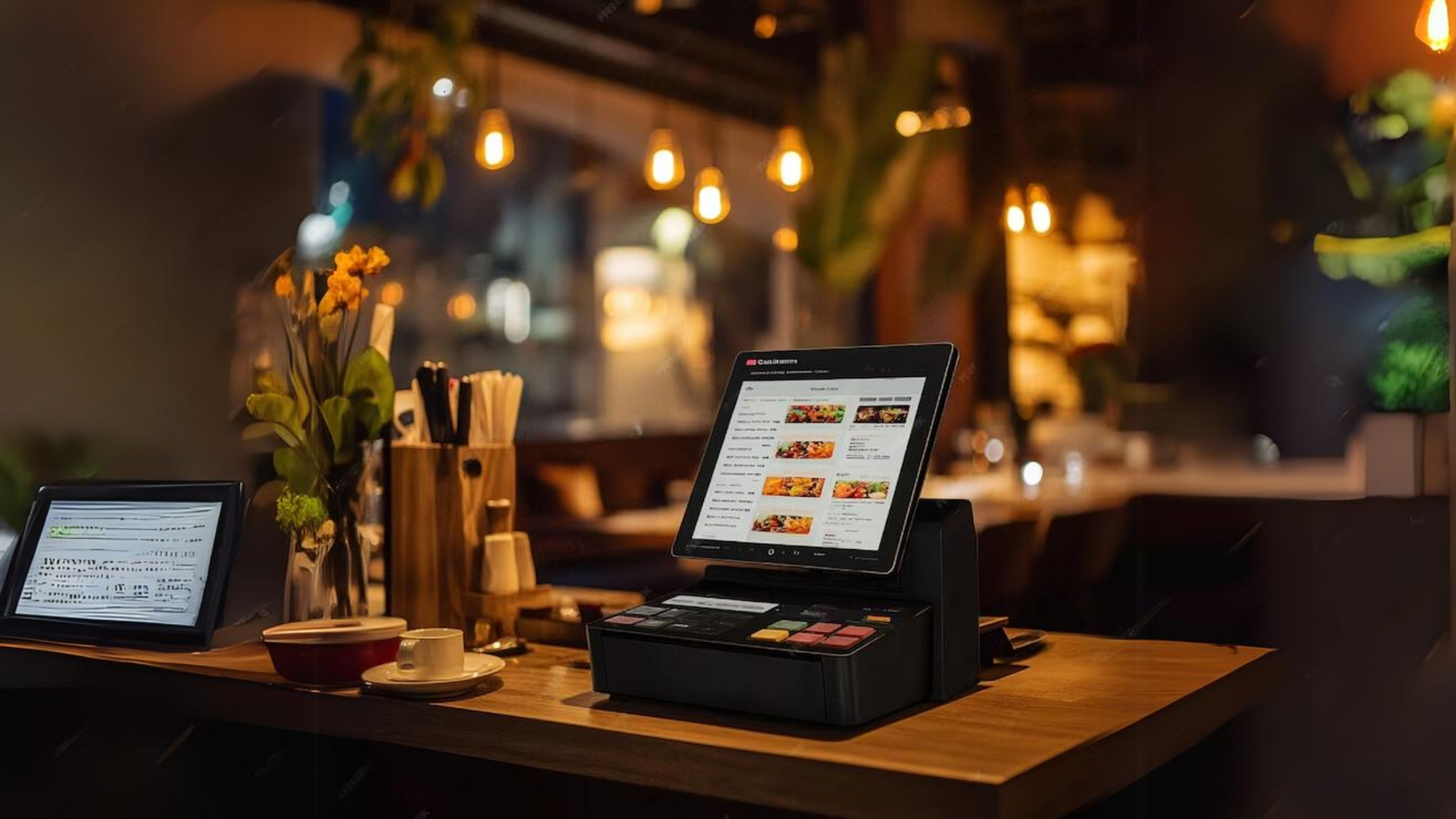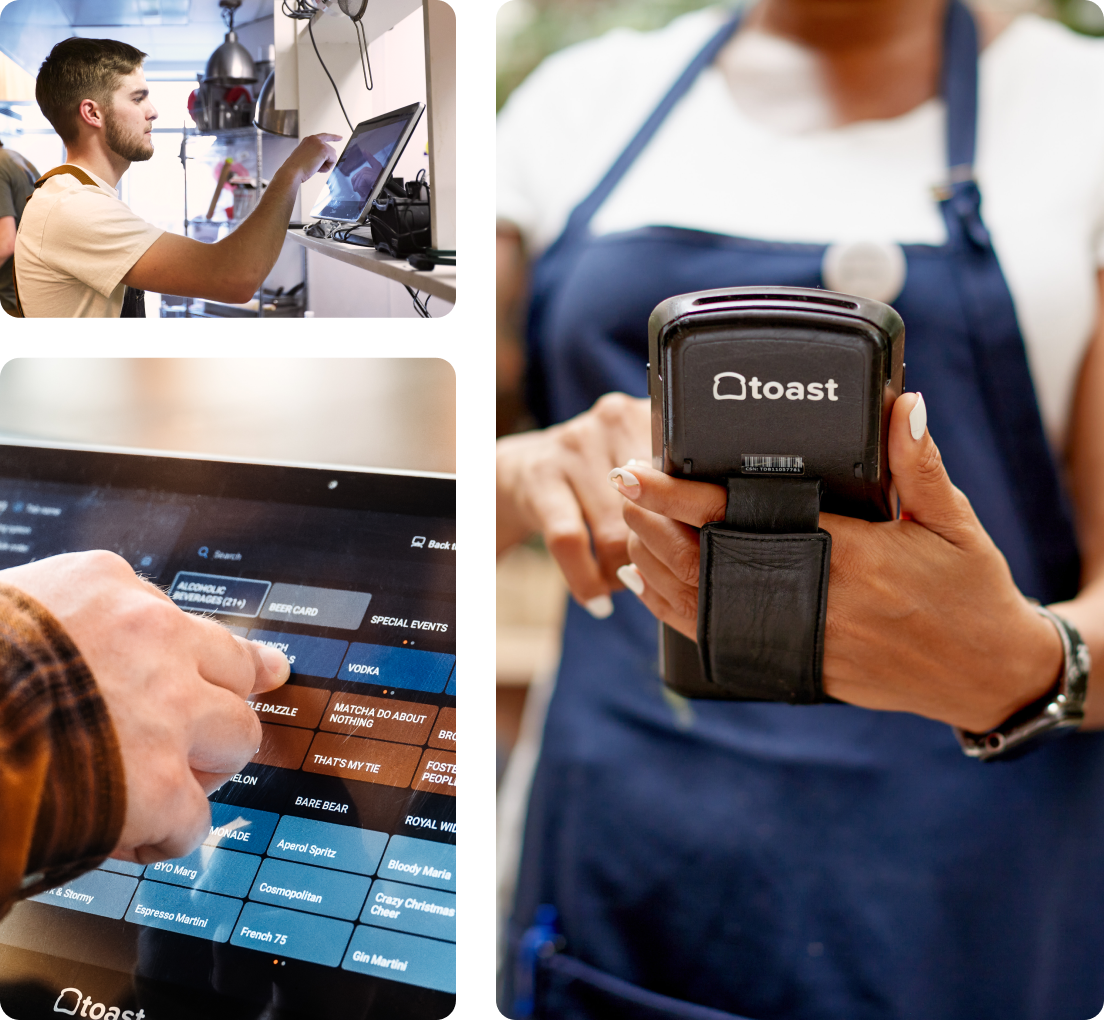Comprehending the Value of POS Software in Modern Retail Workflow
In today's retail landscape, the duty of POS software has actually come to be increasingly substantial. These systems have actually transformed from basic sales register to diverse tools that improve numerous facets of procedures. They not only improve transactions but also provide insights that can shape organization techniques. Comprehending how these systems effect customer experience and supply monitoring is necessary for any kind of store looking for to remain competitive. The effects of these advancements call for additional exploration.
The Advancement of POS Software: From Transaction Handling to Comprehensive Solutions

Enhancing Consumer Experience With Advanced POS Includes

Simplifying Stock Monitoring With Integrated POS Systems
Integrated POS systems play an essential duty in improving inventory management by automating processes that generally required considerable hands-on effort. These systems make it possible for stores to track supply levels in actual time, removing inconsistencies that often emerge from hands-on stock counts. With functions such as barcode scanning and automatic stock replenishment informs, companies can keep suitable inventory levels without overstocking or stockouts.Furthermore, incorporated POS systems promote accurate forecasting by assessing historic sales information, allowing merchants to make informed investing in choices. This predictive ability assists businesses adjust to changing customer demands and seasonal trends a lot more effectively.Additionally, the centralization of inventory data throughout numerous sales networks enhances exposure, enabling retailers to handle their supply much more efficiently. Eventually, the assimilation of POS systems right into inventory monitoring streamlines operations, reduces human error, and adds to enhanced earnings.
Real-Time Sales Tracking and Reporting for Informed Decision-Making

Exact stock administration prepares for effective sales monitoring and coverage. Real-time sales tracking makes it possible for stores to monitor sales efficiency as it takes place, offering instant insights right into customer acquiring patterns and patterns. This capability allows companies to respond quickly to changes in demand, optimizing stock levels and decreasing overstock or stockouts.Moreover, integrated POS systems assist in the generation of in-depth records, highlighting essential metrics such as sales by group, time durations, and specific products. Such coverage capabilities equip merchants to make data-driven decisions, determining successful methods and areas requiring enhancement.
The Function of POS Software in Consumer Partnership Administration
POS software plays an important role in boosting consumer connection monitoring by making it possible for retailers to carry out customized marketing methods. By assessing customer information, services can customize promotions and interactions to meet individual choices. Furthermore, these systems promote the advancement of boosted loyalty programs that encourage repeat business and strengthen consumer involvement.
Personalized Advertising And Marketing Strategies
As sellers progressively seek to boost customer commitment and interaction, individualized marketing methods have actually become an important element of effective client partnership management. POS software plays an important duty in this procedure by collecting and examining client data, enabling sellers to tailor advertising initiatives to private choices and buying behaviors. By leveraging insights from acquisition backgrounds, sellers can develop targeted promotions and individualized communications that reverberate with customers, fostering read what he said a deeper connection. Additionally, the assimilation of POS software with client partnership administration systems permits seamless tracking of client communications, making certain that marketing techniques stay relevant and prompt (Restaurant POS Software). This data-driven strategy not just improves client complete satisfaction yet additionally drives sales and motivates repeat service, strengthening the store's market setting
Boosted Commitment Programs
Stores are increasingly identifying the value of loyalty programs in promoting lasting client connections and enhancing total interaction. POS software plays a vital duty in the development and management of these programs, enabling sellers to track consumer purchases, choices, and actions successfully. By leveraging data analytics, businesses can create customized incentives and incentives that resonate with private customers, consequently enhancing engagement in loyalty programs. Additionally, POS systems make it possible for smooth assimilation with mobile apps and digital systems, promoting very easy accessibility to rewards and promotions. This not only enhances customer fulfillment yet also drives repeat business. Ultimately, POS software equips retailers to grow much deeper connections with their customers, changing periodic customers right into dedicated clients with targeted and purposeful engagement methods.
Integrating POS Systems With Ecommerce Platforms for Omnichannel Success
To attain real omnichannel success, smooth combination in between point-of-sale (POS) systems and ecommerce platforms is necessary. This integration allows merchants to merge their stock monitoring, making sure that product accessibility is precisely mirrored across both online and physical stores. Customers gain from a natural shopping experience, where they can easily switch over between networks without running into discrepancies.Furthermore, integrated systems assist in real-time information sharing, allowing services to examine customer habits and preferences better. This data-driven technique permits retailers to tailor marketing strategies and optimize stock levels, eventually enhancing consumer complete satisfaction and driving sales.Additionally, the ability to procedure purchases throughout platforms streamlines procedures, minimizing the danger of mistakes and boosting total efficiency. As stores increasingly take on omnichannel techniques, the assimilation of POS systems with e-commerce systems remains a crucial aspect in achieving sustainable growth and preserving affordable benefit in the vibrant retail landscape.
Future Patterns in POS Modern Technology and Their Effect On Retail Workflow
As retail procedures progress, future fads in POS modern technology are set to reshape the landscape significantly. The increase of cloud-based options, technologies in mobile POS systems, and the benefits of AI integration are among the key advancements anticipated to boost efficiency and customer experience. These developments promise to streamline procedures and promote a much more vibrant retail atmosphere.
Cloud-Based Solutions Surge
With the increasing dependence on modern technology, cloud-based POS remedies are changing retail procedures by supplying enhanced flexibility and scalability. These systems enable merchants to gain access to real-time information from anywhere, facilitating far better decision-making and customer care. By leveraging cloud facilities, services can decrease in advance prices linked with hardware and software setups while ensuring smooth updates and maintenance. Additionally, cloud-based services support multi-location administration, allowing stores to integrate supply and sales across numerous electrical outlets effortlessly. This versatility is important in today's fast-paced market, our website where consumer choices change swiftly. As even more sellers take on these solutions, they can expect enhanced functional efficiency and an extra responsive More Bonuses strategy to market needs, eventually improving customer satisfaction and commitment.
Mobile POS Innovations
The development of retail innovation remains to form procedures, especially with the rise of mobile POS technologies. These systems make it possible for stores to process transactions anywhere within the shop, enhancing customer interaction and improving check out processes. Mobile POS solutions boost stock administration by allowing instantaneous accessibility to stock degrees, aiding team aid customers much more successfully. Furthermore, they assist in personalized shopping experiences via incorporated client information and commitment programs. As mobile gadgets come to be increasingly sophisticated, merchants are embracing functions such as contactless payments and digital receipts, additionally optimizing the buying journey. The change towards mobile POS not only boosts functional efficiency yet additionally aligns with the expanding customer choice for comfort, making certain that retailers stay affordable in a rapidly evolving market.
AI Integration Benefits
AI assimilation stands for a transformative leap in POS technology, providing merchants a myriad of advantages that enhance functional effectiveness and client experience. By leveraging artificial intelligence algorithms, merchants can examine acquiring patterns and enhance supply management, minimizing waste and stockouts. In addition, AI-powered analytics give individualized marketing referrals, enabling targeted promos that raise client interaction and commitment. In addition, chatbots and virtual assistants improve customer care, enabling quicker resolution of questions and improving the general purchasing experience. Predictive analytics can likewise anticipate need patterns, making it possible for smarter staffing and resource allotment. Ultimately, the integration of AI in POS systems encourages stores to make data-driven choices, fostering a competitive edge in an ever-evolving retail landscape.
Often Asked Questions
What Are the Expenses Related To Carrying Out POS Software?
The expenses related to carrying out POS software can include software licensing fees, hardware expenditures, setup costs, training costs, and ongoing upkeep. Each element adds to the total financial investment required for an effective application.
Just How Can Small Retailers Take Advantage Of POS Systems?
Little sellers can gain from POS systems through enhanced purchase efficiency, streamlined stock administration, and improved customer insights. These systems enable better decision-making, ultimately bring about enhanced sales and customer satisfaction in open markets.
What Hardware Is Needed for a POS System?
A common POS system calls for crucial equipment parts, including a touchscreen screen, cash money cabinet, barcode scanner, invoice printer, and settlement terminal. These components collaborate to facilitate effective deal processing and supply monitoring for retailers.

Can POS Software Be Customized for Certain Retail Demands?
POS software can certainly be tailored to satisfy particular retail demands. Restaurant POS Software. This versatility allows organizations to customize attributes, user interfaces, and coverage devices, boosting operational efficiency and providing a more tailored experience for both personnel and clients
How Protected Is Customer Information in POS Systems?
The protection of consumer data in POS systems differs commonly. Numerous systems execute security, safe accessibility controls, and normal updates, yet susceptabilities can still exist, demanding recurring vigilance and positive steps from retailers to safeguard delicate info.